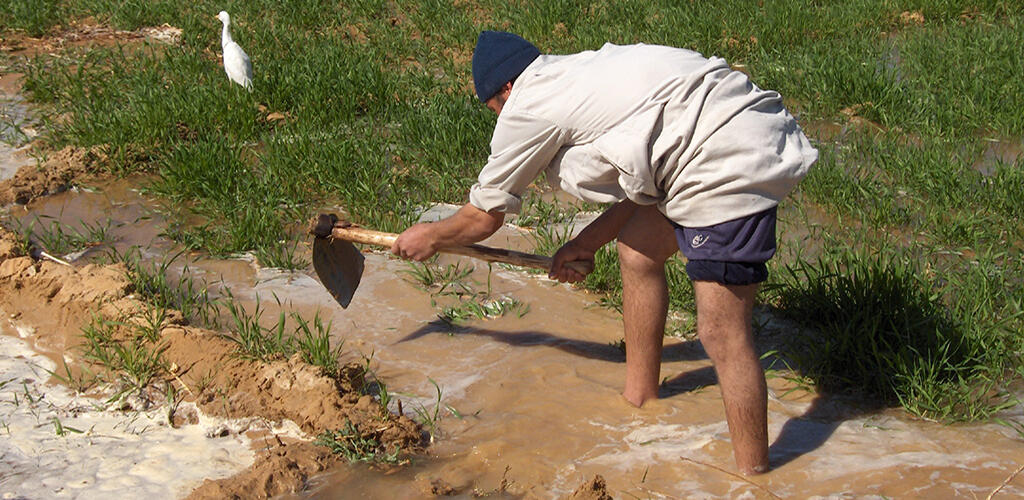Translated from Arabic by Zeina Nasser
Egypt is facing major water challenges, especially that its need for water is increasing with the significant increase in population, and development requirements, with the great urban expansion, which it steadily witnesses. One of the main reasons it’s facing these challenges is the decrease in the amount of water available.
It is known that Egypt’s water resources are very limited, and are mainly confined to the Nile River, in addition to limited quantities of groundwater, distributed widely in the desert away from the Nile Valley.
Egypt’s water challenges begin with climate change, along with the decline in the amount of precipitation, and the decrease in the amount of water in the Nile River in particular, which is accompanied with increased drought and high temperatures. This, in turn, increases the evaporation of water, and also increases the need for water.
“Al Nahda” dam, which Ethiopia began establishing, poses serious challenges to Egypt’s water balance; it will decrease the amount of water arriving in Egypt from the Nile River. It is known that the Nile has always been a source of life for Egypt throughout history.
Egypt’s share of the Nile water is fixed, despite the enormous changes happening, which predict a sharp disparity between the available water and the growing needs.
This expected decrease puts Egypt in front of high challenges and risks, forcing it to speed up the development of strategic plans, in order to meet the growing needs of the Egyptian people and the economy, not to forget the large urban expansion and population increase.
Added to these threats is Israel’s schemes against the Egyptian water, and the pressure it poses on the Egyptian public policy.
These ambitions date back to the thirties of the last century, when the founder of the Zionist movement, Theodor Herzl called on the British government to transfer part of the Nile River to the Negev desert in occupied Palestine.
Israel ‘s greed continues, to reach the groundwater in Sinai desert; it has studied its quantities via satellite in the nineties of the last century, and made up plans for the extraction of abundant amounts from it to irrigate its (Israel’s) crops.
Per capita share of water in Egypt shrunk to 600 cubic meters per year only, and this share is expected to decrease in the future, which puts Egypt in front of major responsibilities, and requires huge budgets for the development of unconventional water resources.
Egypt intends to expand its urbanization towards the desert, and it is developing plans to achieve this strategy, in order to benefit from the available groundwater resources in some of its areas. It is also working on developing renewable energy sources, particularly solar and wind energy in the development and construction of desert areas.
The Egyptian government is working on developing and implementing programs for rational management of water resources, reducing squandering, and treating sewage water, in order to use it in irrigation.
The Egyptian government’s plans reveal that there is a strategic approach for saving potable water, through total dependency on sea water desalination to meet the coastal areas’ needs of fresh water, in addition to the use of solar energy for the operation of these stations, in order to reduce the cost of desalination.
The Egyptian government has recently signed a $500 million contract with the company, “Hyflux” (based in Singapore). The contract is for the construction of a desalination plant, linked to a power station in Ain al-Sokhna area in the economic zone of the Suez Gulf.
This plant will produce 150 thousand cubic meters of desalinated water per day, and 475 megawatts of electric power, through a combined cycle gas turbine power plant, in order to provide the desalination plant’s electric power needs, and the excess electricity will be used for the region’s electricity needs.
The company will build the project, operate and maintain it for 25 years, and the project will be later owned by the Egyptian government. Diverse and Integrated Policies and strategies are facing Egypt today, in order to meet the current and future water challenges.











